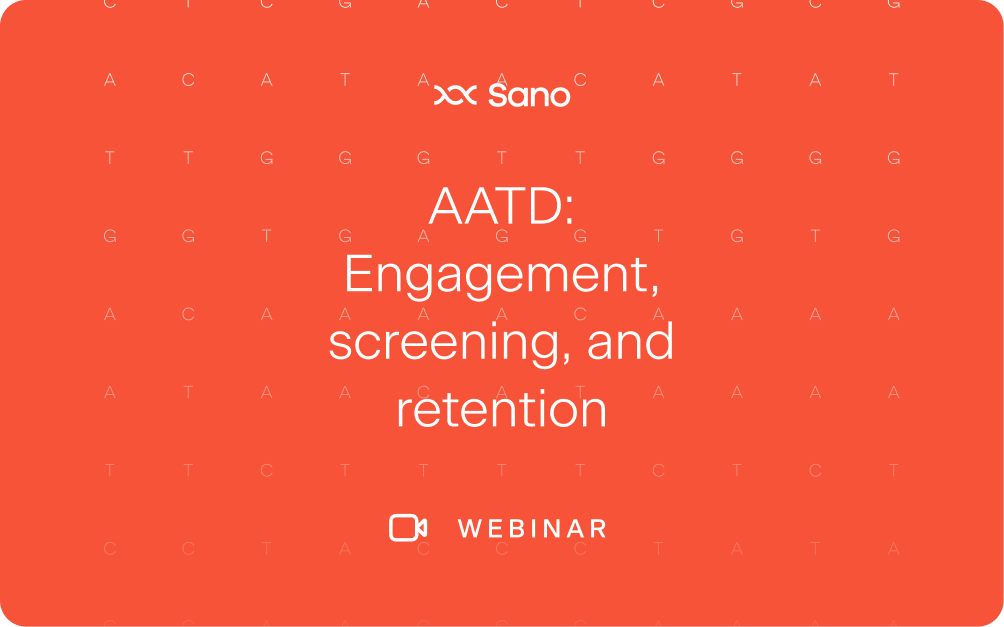Webinar recap: Alpha-1 Antitrypsin Deficiency engagement, screening, and retention

In this webinar, "Alpha-1 Antitrypsin Deficiency: Engagement, screening, and retention," Sano Senior Project Manager, Hayley Holt, shares a case study on our work with an industry-leading sponsor to deliver genetically-qualified volunteers for a precision medicine clinical trial focused on Alpha-1 Antitrypsin Deficiency (AATD). The webinar explores the methodologies used and describes the success of the project.
The link to the full webinar is here; a brief summary is below for easy reference.
About the speaker

Hayley Holt, PhD
Hayley Holt is a Senior Project Manager at Sano Genetics, where she oversees global precision medicine trials. With a PhD in Epidemiology from Queen Mary University of London and a Master's degree in Reproductive and Developmental Biology from Imperial College London, Hayley brings extensive expertise in genetic research and clinical studies. Her professional journey includes leading the COVIDENCE UK Study and developing patient-focused products at Lindus Health.
Highlights from the webinar
AATD is a a genetic disorder leading to lung and liver disease due to a deficiency in the alpha-1 antitrypsin (AAT) protein. AATD affects 1 in every 1,500 to 3,500 individuals of European heritage and is often misdiagnosed or underdiagnosed, frequently mistaken for COPD or asthma.
For this AATD project, Sano collaborated with a sponsor and a contract research organisation (CRO) to identify, screen, and engage participants with rare genetic variants associated with AATD. Hayley outlines the innovative strategies employed to meet these challenges:
Genetic and pre-screening approach: Sano developed a patient finding protocol to locate difficult-to-reach patients faster. Participants were required to have pre-existing genetic data and to live close to the trial site, narrowing the participant pool. Sano utilised their existing database and partner network of genetically-sequenced individuals to deliver genetically qualified referrals.
Non-Invasive testing and engagement: Sano offered non-invasive at-home saliva DNA testing for patients, and created a virtual waiting room (VWR) designed to provide engaging and meaningful interactions. The VWR allowed for segmenting patients into specific cohorts for customised communications, facilitating ongoing engagement between study stages and site visits.
Success metrics: Sano successfully delivered 90% of the referral target within the first four weeks of the agreed four-month recruitment period, referring 58 genetically-suitable volunteers. The approach significantly reduced site burden, lowered screening costs, and improved the patient experience.
Summary
This webinar provided an in-depth look into Sano’s innovative approach to tackling the challenges of AATD research through strategic recruitment, genetic screening, and patient engagement. By addressing the specific needs of patients with this rare genetic disorder, Sano continues to set new standards in precision medicine clinical trial recruitment and efficiency. Watch below for more details:

